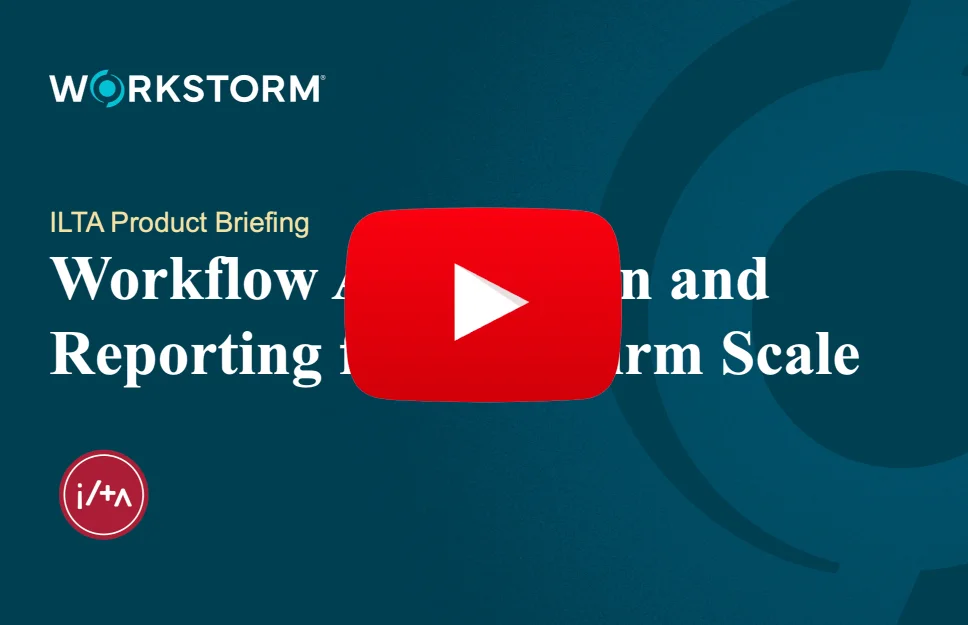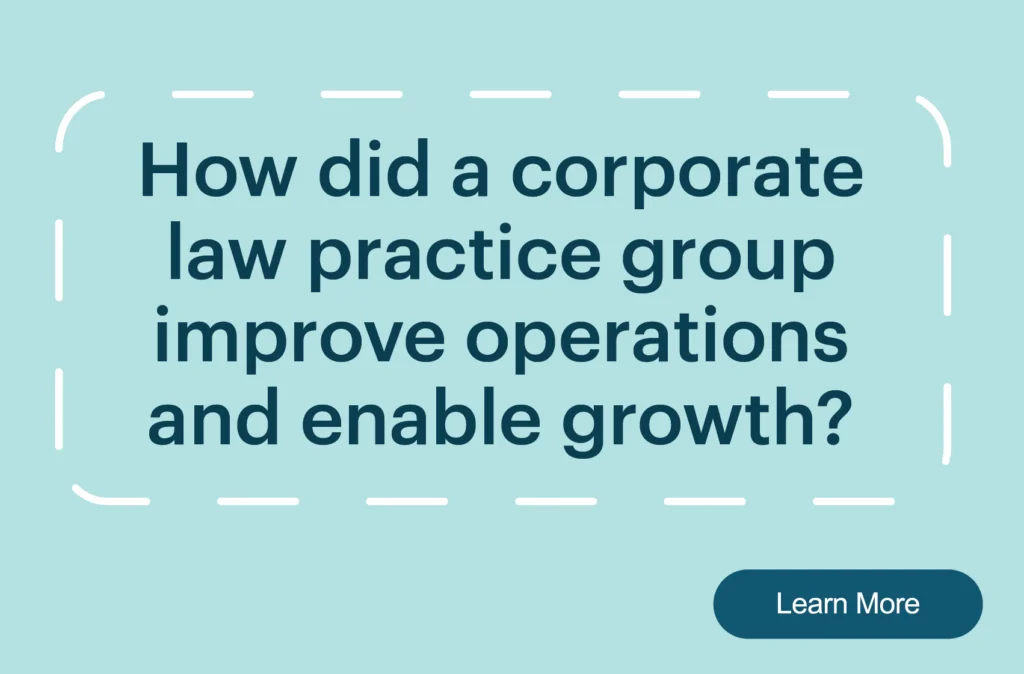For law firms , effectively managing legal matters is the cornerstone of an efficient operation and success. However, it is common for firms to face obstacles that include centralizing collaboration for internal teams and external parties, controlling access to confidential information, tracking billing discrepancies, accommodating client demands to stay informed, and maintaining information governance standards. These challenges can lead to cyber risks, billing gaps, low client retention, and difficulties keeping both teams and clients well informed. A recent survey by Wolters Kluwer found that 87 percent of attorneys surveyed felt that technology has improved day-to-day work, but only 46 percent felt they were fully leveraging technology. The survey stated that, “As client demands evolve, law firms are under pressure to enhance productivity, efficiency, and collaboration through technology.”
Workstorm offers a solutions-based approach to solve a law firm’s most common collaboration challenges.
1. Centralize Matter Communication and Remove Siloed Internal and External Collaboration
Law firms with decentralized matter communication have collaboration gaps between internal and external parties, stemming from overreliance on email or text for short-form messaging. The overdependence on email as a primary form of short form messaging can lead to an increased risk of security breaches such as email spoofing, phishing, or malware attacks. Further, these communication silos, which allow for quick exchanges of information, result in billing disparities, e.g., underbilling.
Workstorm’s communication channels are private by default with access granted on a need-to-know basis, allowing firms to control external participant involvement. By utilizing private channels, law firms can enhance secure collaboration, mitigating cyber risks associated with communication through less secure channels. Firms can maintain records by moving short-form communication into a secure, private channel and reduce the likelihood that a lawyer or client falls victim to bad actors. Centralizing communication on Workstorm reduces billing discrepancies by tying short form messaging and meetings directly into the billing system.
2. Prevent Oversharing
Managing oversharing reduces the risk of improper access to confidential or privileged information within law firms. Without proper controls in place, sensitive information might be accessed by unauthorized parties, leading to compliance issues or potential legal implications. However, by restricting collaboration completely, firms may hinder the flow of information and the speed of decision making.
Workstorm addresses this challenge by offering a centralized deployment of channels organized by matter. By structuring and managing workspaces for meetings, file sharing, and messaging, law firms not only ensure that designated individuals have access to matter details but enable a secure flow of collaboration between internal teams and external guests. Moreover, the ability to generate matter templates reinforces strong matter management efficiency across the firm and within specific practice areas.
3. Keep Internal Teams Informed While Managing Client Expectation
Meeting client expectations for information delivery can be challenging when information is shared and/or duplicated across multiple forms of communication. Clients often want and need quick access to litigation teams and documents. The ability to provide a secure channel for clients to chat and access documents can improve client experience, expedite decision making, and ensure continuity of communication for internal teams.
Workstorm offers a centralized destination for client interaction, including short form messaging, review of documents, and ad hoc meetings. The platform integrates leading document management systems (DMS) into its platform and is designed to work regardless of the technology platforms clients already use. Workstorm enables law firms to achieve better outcomes for clients, improve client retention rates, and foster firm growth.
4. Ensure Privacy and Manage Information Governance
Ensuring privacy between information governance administrators and lawyers/clients is crucial for maintaining confidentiality and upholding data security practices within law firms. Without proper role-based access controls, there is a risk of unauthorized access to sensitive information, compromising client trust and potentially leading to compliance issues.
Workstorm creates a privacy layer between a firm’s information governance administrators and the confidential communication between lawyers and clients. Governance administrators can specify the matter, segregate information, and apply custom retention policies, while matter administrators can define communication channels for the legal matter. This ensures that sensitive data is safeguarded, compliance requirements are met, and privacy between information governance administrators, lawyers, and clients is maintained effectively, contributing to improved overall governance practices within the firm.
Summary: Workstorm for Workstreams
In short, law firms can turn collaboration challenges into opportunities to improve operational efficiency, enhance client satisfaction, and achieve overall success. Workstorm offers a comprehensive solution that centralizes communication, mitigates the risk of oversharing confidential information, ensures teams are well-informed, and establishes effective information governance within the firm. Interested in talking to a solution architect? Talk to an expert >>


